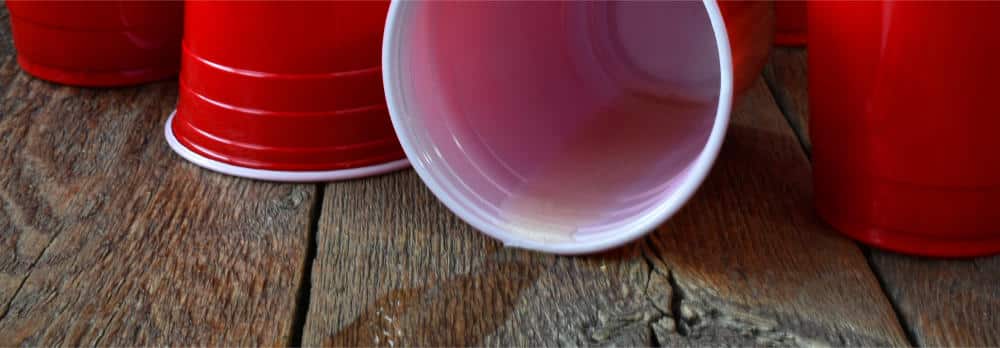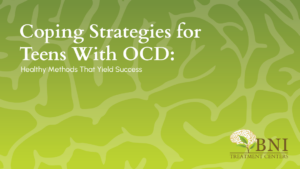Like a magnet, teenagers, and even kids as young as the 8-12 year-old “tween” cohort, have always shown a mysterious attraction to alcohol. So, if you are a parent of an adolescent, it is highly likely that your child might have already been introduced to alcohol. Whether this occurred at a family celebration or a summer beach party or any other venue, chances are the teen has tried a sip, if for no other reason but to satisfy their curiosity.
As adults with the benefit of hindsight and life experience, many have witnessed the devastation that alcohol can bring on anyone of any age. It falls on parents, above all other authority figures in a teen’s life, to provide the guidance needed to arm kids with the truth about the dangers of underage drinking, and of alcohol in general. While, admittedly, teens are prone to ignoring their parent’s lectures and warnings, on some level this teenage drinking parenting advice will hopefully stick with them and resonate.
The statistics are truly sobering. According to a 2021 report from the National Institute on Alcohol Abuse and Alcoholism (NIAAA), 623,000 kids ages 12-17 had an alcohol use disorder (AUD). In addition, the NIAAA reports that 5.9 million young people aged 12-20 admitted to drinking alcohol in the past month, with 613,000 in that age range reporting heavy alcohol use. College students continually consume alcohol at higher rates than young adults not enrolled in college—underscoring the pervasiveness of the party culture on college campuses. In 2015, 58% of college students drank alcohol in the past month, compared to 48% of non-college students the same age. Regarding heavy alcohol consumption, 12.5% of the college students admitted to it, versus 8.5% of non-college attending young adults.
The Importance of Parent’s Role in Guiding Teens About Drinking
Parents who take a more passive or permissive approach to guidance will want to rethink that, if in no other area but the issue of substance abuse. Teens may appear on the outside to want nothing to do with mom and dad when they reach adolescence, but in reality they still crave the loving guidance of their parents. They need direction.
While true that parents have little control over their teens drinking behaviors, especially once they reach high school, they can still have an important role to play in shaping the teen’s attitudes about drugs and alcohol. Having open conversations with the teen on a regular basis is much more natural when a close parent-child bond already exists. Cultivating such a relationship from early childhood paves the way for discussions about the hazards of drinking over the years. The information the parent provides will be retained on some level when it has been a normal aspect of the parent-teen bond.
Just as important as the words a parent uses to convey the dangers of drinking, teenage drinking parenting advice falls flat if the parent does not provide a good example to their kids. Kids and teens tend to model the behaviors they grow up with in the home. Parents should refrain from overt signs of alcohol use or intoxication in order to provide validity to their pronouncements about the dangers of alcohol use.
Because all parents were at one time teenagers, they understand the temptations around experimenting with alcohol. Being on the offensive as a parent is wise. This can mean coordinating oversight with other parents of teens the child hangs out with. Forming an open line of communication with these other parents can provide information about gatherings, if they are supervised, and activities at the parties.
Teach Teens that Drinking Can Be Lethal
According to statistics provided by the NIAAA an estimated 188,000 teens visited the emergency department due to an alcohol-related incident in 2011. Further, the agency attributes approximately 4,500 deaths of teens per year to an alcohol-related event. These deaths include:
- 1,580 deaths in automobile accidents
- 1,269 deaths from homicide
- 492 deaths from suicide
- 245 deaths to alcohol poisoning or accidents
Alcohol use during the teen years can also result in high-risk behaviors, such as promiscuous sexual habits, sexual assault, or physical assault, resulting in criminal charges and legal problems, unplanned pregnancies, or STDs.

Teaching Teens About the Dangers of Alcohol
Begin an ongoing conversation with your kids about the dangers of alcohol at a fairly early age, such as 6th or 7th grade, maybe using a current news story of some young people who were harmed due to alcohol poisoning or drunk driving as a launch point. This topic is important enough that it deserves to be revisited often throughout the teen years. Peers begin to trump parents starting at this age, so plant your seeds of wisdom before their friends influence them in an opposite direction.
If you have an older teen that is preparing for college, by all means dialogue on a regular basis about the serious dangers of alcohol abuse, binge drinking, college hazing practices, and drunk driving. Use real life examples, such as binge drinking deaths, to drive home your message. The following points are excellent ones to focus on when discussing the risks associated with drinking alcohol:
- Early age drinking increases later risk of alcoholism. Kids who start drinking before age 15 are 4 times more likely to become alcoholic later in life, with 66% of them were addicted to alcohol by age 25, according a 2016 CDC report published by the NIAAA. Alcohol abuse leads to increased tolerance, where the teen will need increasingly higher levels of alcohol to experience the desired effects. Once alcohol abuse becomes habit, alcohol addiction—the compulsive desire to drink, often to fend off withdrawals—can develop, resulting in a lifelong disease.
- Mixing alcohol with other drugs or caffeine is dangerous. Drinking alcohol has multiple risks, but combining it with another drug can have dangerous, even fatal, consequences. Alcohol is a depressant, so mixing it with another depressant, such as benzodiazepines, can repress breathing and impair motor control. Mixing alcohol with stimulants like Adderall or Ritalin can heighten risk for heart problems and liver damage. Mixing alcohol with cocaine can lead to heart arrhythmias and heart damage. Mixing alcohol with caffeinated energy drinks can lead to excessive drinking, as the stimulant offsets the effects of the alcohol resulting in risky behavior such as drunk driving or sexual assaults.
- Binge drinking can kill. Drinking games have become a staple at teen and college parties, and often result in binge drinking competitions. The CDC defines binge drinking as consuming five or more alcoholic drinks within a two-hour period. Alcohol poisoning is a real danger that can result from binge drinking behavior, and can be fatal. Alcohol-related tragedies have become far too common on college campuses. Alcohol poisoning depresses the individual’s involuntary actions, such as breathing and the gag reflex that prevents choking. This can cause the cardio-vascular and respiratory systems to fail. When this occurs, the individual may gag and choke on their vomit, with fatal consequences.
- Using alcohol to self-medicate anxiety or depression can lead to alcoholism. Anxiety and depression are becoming more common among today’s young people. Some may attempt to self-medicate using alcohol, hoping to relieve the unpleasant symptoms of the mental health issues they are experiencing. Using alcohol may seem to help them at first, but begins a vicious cycle that often leads to alcohol addiction, worsening depression, and even suicidal ideation, the occurrence of suicidal thoughts or behaviors. In this case of a dual diagnosis, both the alcohol abuse or alcohol addiction and the mental health disorder must both be treated.
Getting Help for Teens with a Developing Alcohol Use Disorder
If a teen has acquired an alcohol use disorder it is imperative that they receive appropriate intervention as early as possible. When the teen has an emerging or new alcohol use disorder, an outpatient program for teens is likely to have the resources for the family and the teen to obtain the help needed. If the AUD has been allowed to escalate, then a residential program that specializes in helping teens is an appropriate level of care.
A residential teen treatment program will have the necessary addiction specialists on staff, in addition to psychiatrists and clinicians. These programs have in place a medical detox program where the teen will be continuously monitored throughout the detox and withdrawal portion of treatment.
If there is a co-occurring mental health disorder, the teen program sought should specialize in treating a dual diagnosis. A protracted AUD in teens often presents with a coexisting mood disorder, such as depression, anxiety, or bipolar disorder. Both the AUD and the mental health disorder will need to be treated for optimal recovery results.
BNI Treatment Centers Residential Teen Mental Health Los Angeles
BNI Treatment Centers is a Los Angeles-based residential program for teens struggling with mental health disorder. BNI Treatment also provides medical detox services and dual diagnosis treatment for teens that have developed a substance use disorder. The teen-focused program is designed around the concept that treatment approaches must resonate with the teen in order to be relevant and useful to them. In this regard, BNI has formed an integrated program that incorporates experiential activities, such as surf therapy, art therapy, yoga, and dance, into the overall evidence-based approaches, such as cognitive behavioral therapy, solutions-focused therapy, mindfulness-based cognitive therapy, and dialectical behavior therapy. If the teenage drinking parenting advice fell on deaf ears and your teen is in trouble now, please contact the team at BNI Treatment Centers for help today at (888) 522-1504.



